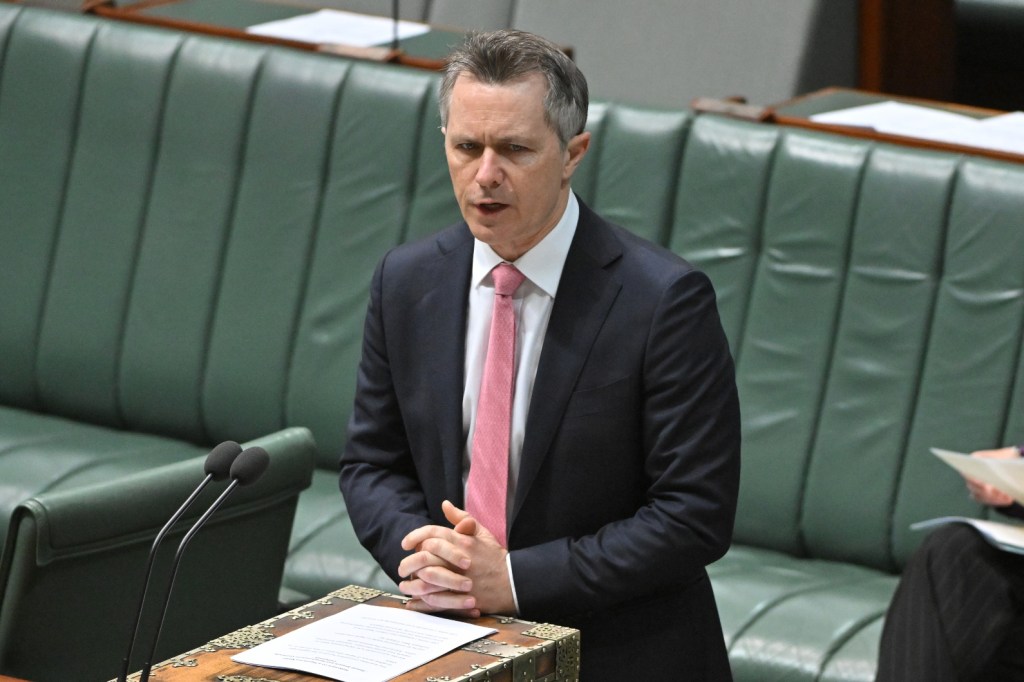
Legislation implementing the recommendations of the ARC review of the Australian Research Council Act 2001 to consider the role and purpose of the ARC within the Australian research system was introduced in parliament on Wednesday.
In a statement, education minister Jason Clare said the ARC had been “bedevilled by political interference” over the past decade. He added that during the time the Coalition was in power, ARC grants had been subject to delays — including an occasion where former minister Stuart Robert vetoed approved research — by relevant ministers.
“That has made it harder for universities to recruit and retain staff, and it has damaged our international reputation,” Clare said.
“That’s not good for our universities. It’s not good for businesses either who work with our universities.”
Three months ago, the Labor government issued its response to review findings by Professor Margaret Sheil, Professor Susan Dodds and Professor Mark Hutchinson, which included 10 recommendations to improve the ARC’s governance and independent decision-making processes.
The Australian Research Council Amendment (Review Response) Bill 2023 implemented six of the 10 recommendations. Minister Clare noted reform was not needed to implement the outstanding recommendations.
“I promised to end the days of ministers using the ARC as a political plaything,” Clare said.
“This legislation will ensure the ARC is set up to meet current and future needs and maintain the trust and confidence of the research sector.”
The law reforms introduce changes that make a new independent ARC board responsible for the approval of national competitive grants.
Parliamentary scrutiny will be reserved for funding guidelines, which the minister will be responsible for, designed as a safeguard against politicising research grant decisions.
Conditions and exceptions to this arrangement also mean the minister retains the power to approve “nationally significant investments” for projects that drive research, infrastructure, training and collaboration.
The minister also reserves the right to use national security grounds to direct the ARC board not to approve a grant, or to terminate funding to research grants. In this case, the minister will be required to notify parliament of the decision.
The final report for the ARC review was handed to the government in April and considered how relevant laws could deliver a renewed focus for the organisation with clearer statutory objectives and processes.
More than 220 public submissions were made to the review consultation paper, and the review panel convened meetings and focus groups with a range of stakeholders across the research ecosystem, industry groups, peak bodies and government agencies.
The federal government’s response to the ARC review either agreed or agreed in principle to all recommendations.
The government’s in-principle position related to recommendation 10 concerning the evaluation of excellence and impact, where the review warned ERA and EngagementImpact (EI) must not be replaced with a metrics-based method.
The review said evidence showed metrics-based approaches to evaluate excellence and impact could be biased or inherently flawed in the absence of expert review and interpretation.
In its official response, the government noted that the ERA and EI initiatives would not continue in their current form.
“Research remains a key element of all Australian universities, and reform of the performance measurement and management of university research is critical to ensure that the future contribution of universities is driven effectively,” the response read.
“As such, the minister for education has requested the Australian Universities Accord Panel consider the recommendation on measuring impact and engagement in university research.”
The University Accord’s final report will put forward its idea of what a new model for measuring excellence and impact should look like by the end of the year.
READ MORE:
Time is running out to have a say in how universities are run

